Goldilocks Says Sorry
£3.00
Activities in this lesson include writing an informal letter, looking at the features of an informal letter and deconstructing an informal letter.
There is a five-minute evidence-based CPD activity at the end of this lesson which will develop classroom teachers’ skill set. This CPD consists of a research extract on metacognition with a five-minute activity based on this extract.
Description
These evidence-based learning (EBL) lessons are based on classroom practice that has been proven, by research, to maximise thinking, learning and attainment. From an extensive review of educational research, we identified the eight key classroom thinking and learning skills that were common across these research papers. We named these eight key skills “EBL skills”.
EBL skills have been proven by research to maximise learning because they combine the most productive thinking skills with the most effective learning behaviours. Each of our evidence-based learning lessons uses the English curriculum as a framework through which the eight EBL skills are delivered.
Teachers also have the opportunity to add to their own skill set or refresh their existing skills with our five-minute CPD activity, based on one of the EBL skills used in this lesson.
The skills in bold below are the EBL skills developed in this Goldilocks lesson. Click on each skill to learn more about that skill.
- Collaboration
- Thinking Skills
- Peer Assessment
- Peer Teaching
- Self-Assessment
- Metacognition
- Self-Regulation
- Independent Learning
1 review for Goldilocks Says Sorry
Only logged in customers who have purchased this product may leave a review.
Related products
-


Cinderella Climbs a Story Mountain
£3.00 Add to basket £3.00Add to basket
£3.00Add to basketActivities in this lesson include learning about the structure of early and later traditional stories, completing a story mountain for Cinderella, looking at messages and magic in traditional stories and putting the events in Cinderella in the right order.
There is a five-minute evidence-based CPD activity at the end of this lesson which will develop classroom teachers’ skill set. This CPD consists of a research extract on metacognition with a five-minute activity based on this extract.
VIEW -
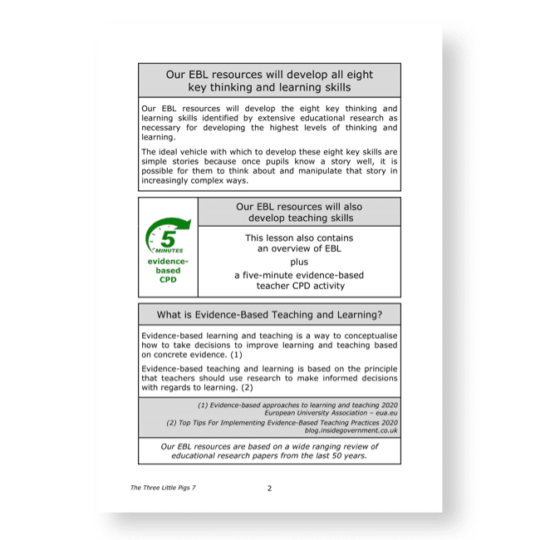
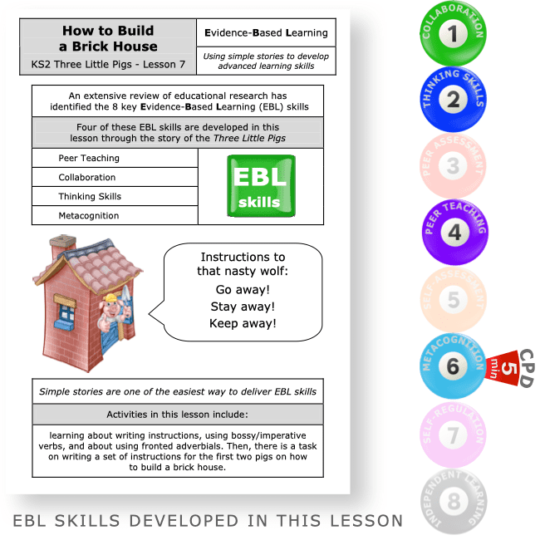
How to Build a Brick House
£3.00 Add to basket £3.00Add to basket
£3.00Add to basketActivities in this lesson include learning about writing instructions, using bossy/imperative verbs, and about using fronted adverbials. Then, there is a task on writing a set of instructions for the first two pigs on how to build a brick house.
There is a five-minute evidence-based CPD activity at the end of this lesson which will develop classroom teachers’ skill set. This CPD consists of a research extract on metacognition with a five-minute activity based on this extract.
VIEW -

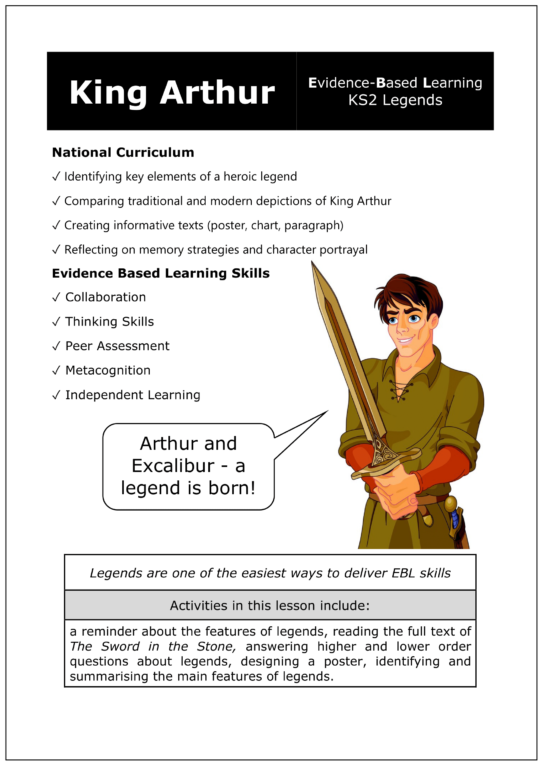
Y6 The Legend of King Arthur
£3.00 Add to basket £3.00Add to basket
£3.00Add to basketKS2 National Curriculum:
✓ Identifying key elements of a heroic legend
✓ Comparing traditional and modern depictions of King Arthur
✓ Creating informative texts (poster, chart, paragraph)
✓ Reflecting on memory strategies and character portrayalActivities in this lesson include a reminder about the features of legends, reading the full text of The Sword in the Stone, answering higher and lower order questions about legends, designing a poster, identifying and summarising the main features of legends.
There is a five-minute evidence-based CPD activity at the end of this lesson which will develop classroom teachers’ skill set. This CPD consists of a research extract on metacognition with a five-minute activity based on this extract.
VIEW -
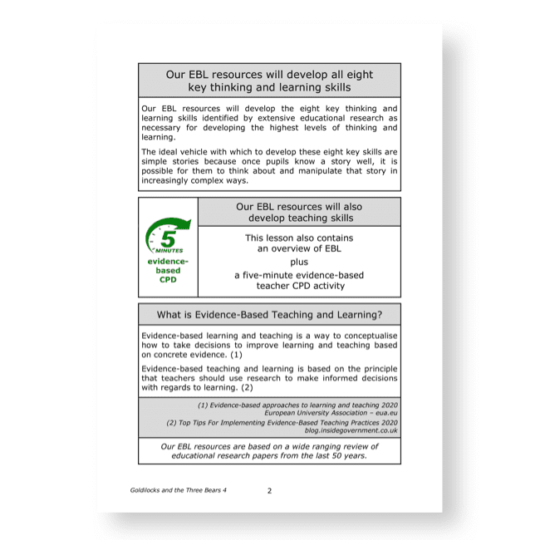
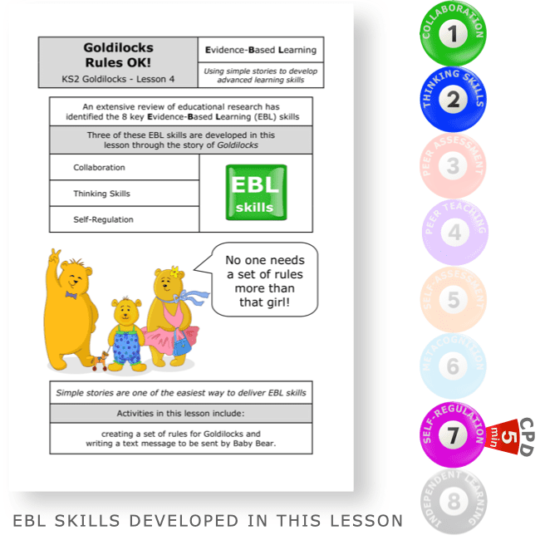
Goldilocks Rules OK
£3.00 Add to basket £3.00Add to basket
£3.00Add to basketActivities in this lesson include creating a set of rules for Goldilocks and writing a text message to be sent by Baby Bear.
There is a five-minute evidence-based CPD activity at the end of this lesson which will develop classroom teachers’ skill set. This CPD consists of a research extract on self-regulation with a five-minute activity based on this extract.
VIEW

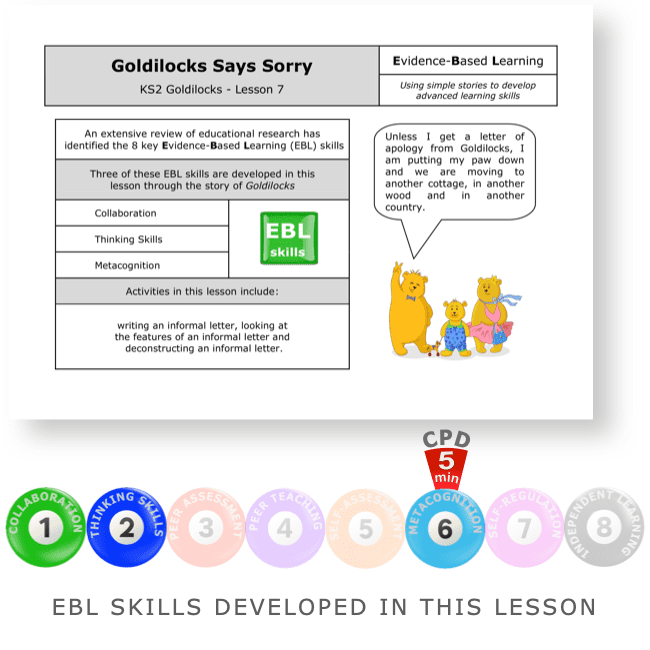
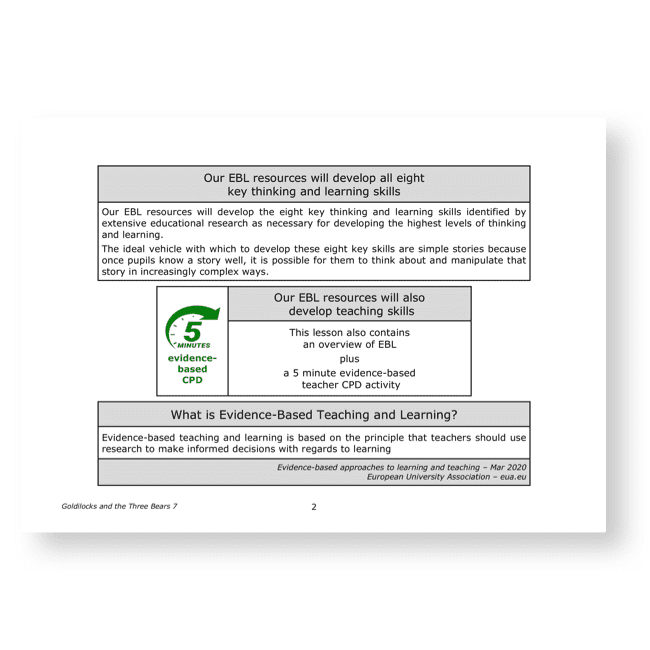
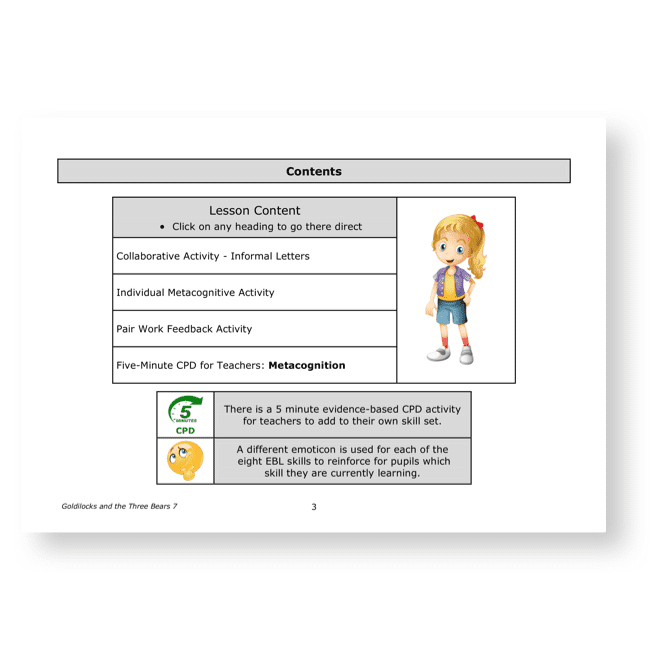
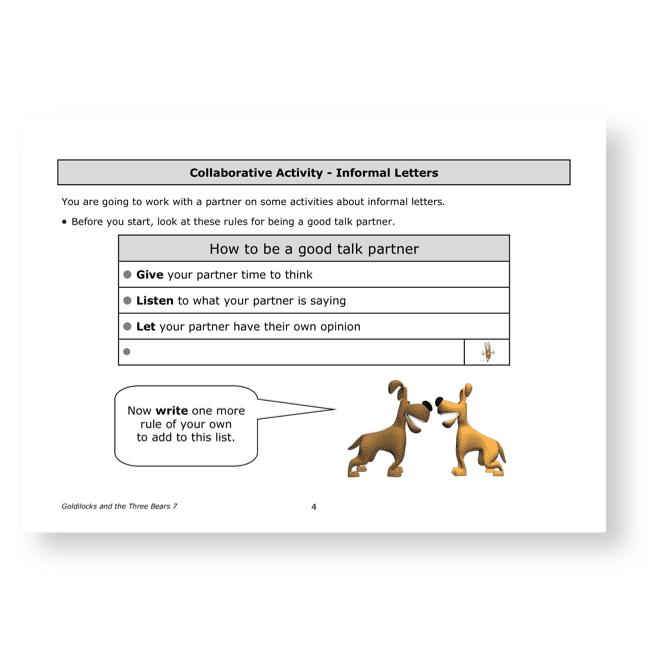
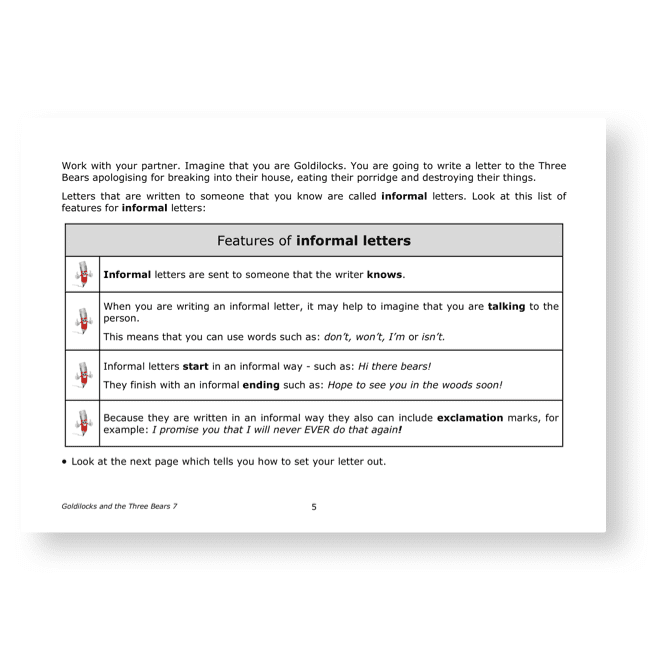
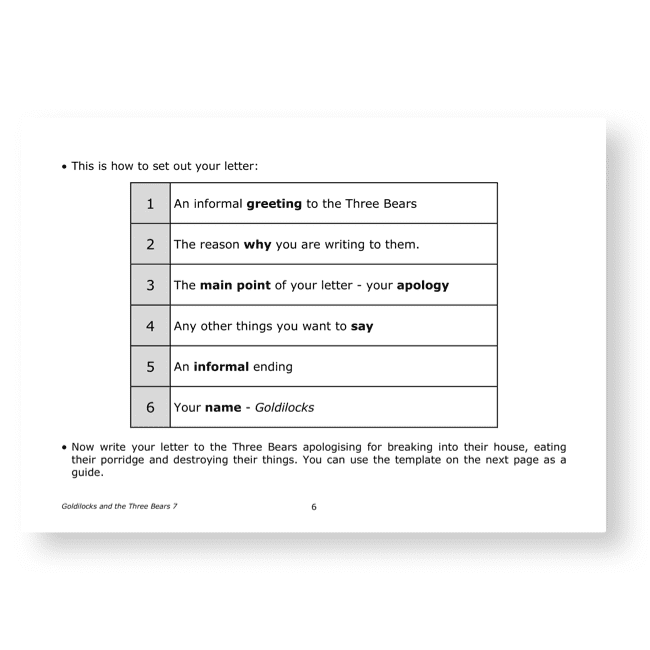
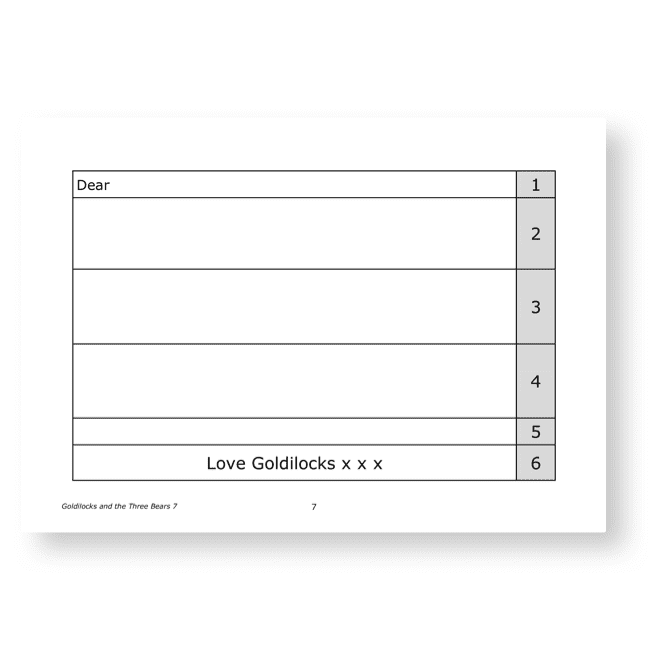
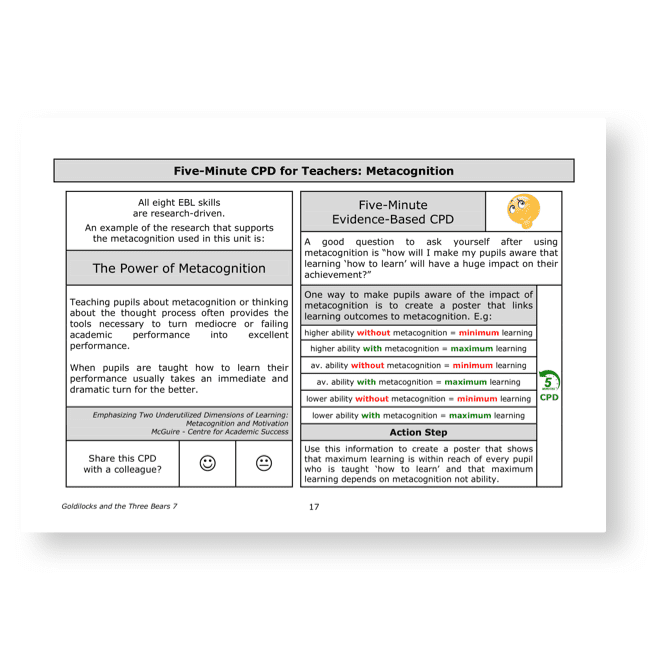
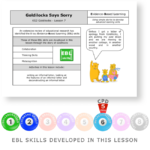
Philipem (verified owner) –
We asked a.i. to review this lesson. This is what it said:
Teachers – Teach Apology Writing with “Goldilocks Says Sorry”
If you’re looking for a clever way to teach your students apology letter writing, look no further than the “Goldilocks Says Sorry” lesson. It integrates the classic tale of Goldilocks with instruction on informal letters, collaboration, thinking skills, and metacognition.
Here’s what makes this resource great for the classroom:
★ Teaches informal letter writing. Students write an apology letter from Goldilocks’ perspective.
★ Covers letter components. Greeting, body paragraphs, closing, and postscripts are included.
★ Collaborative activities. Partners work on letters and give feedback.
★ Develops 3 EBL skills. Collaboration, thinking, and metacognition are focused on.
★ Contains research-based teacher CPD. 5-minute CPD builds understanding of metacognition.
With its fun storyline, integrated EBL skill building, and actionable CPD, the “Goldilocks Says Sorry” lesson provides a creative way to teach informal letter writing. I give it ⭐⭐⭐⭐⭐ for making vital English skills entertaining and effective. Check it out!